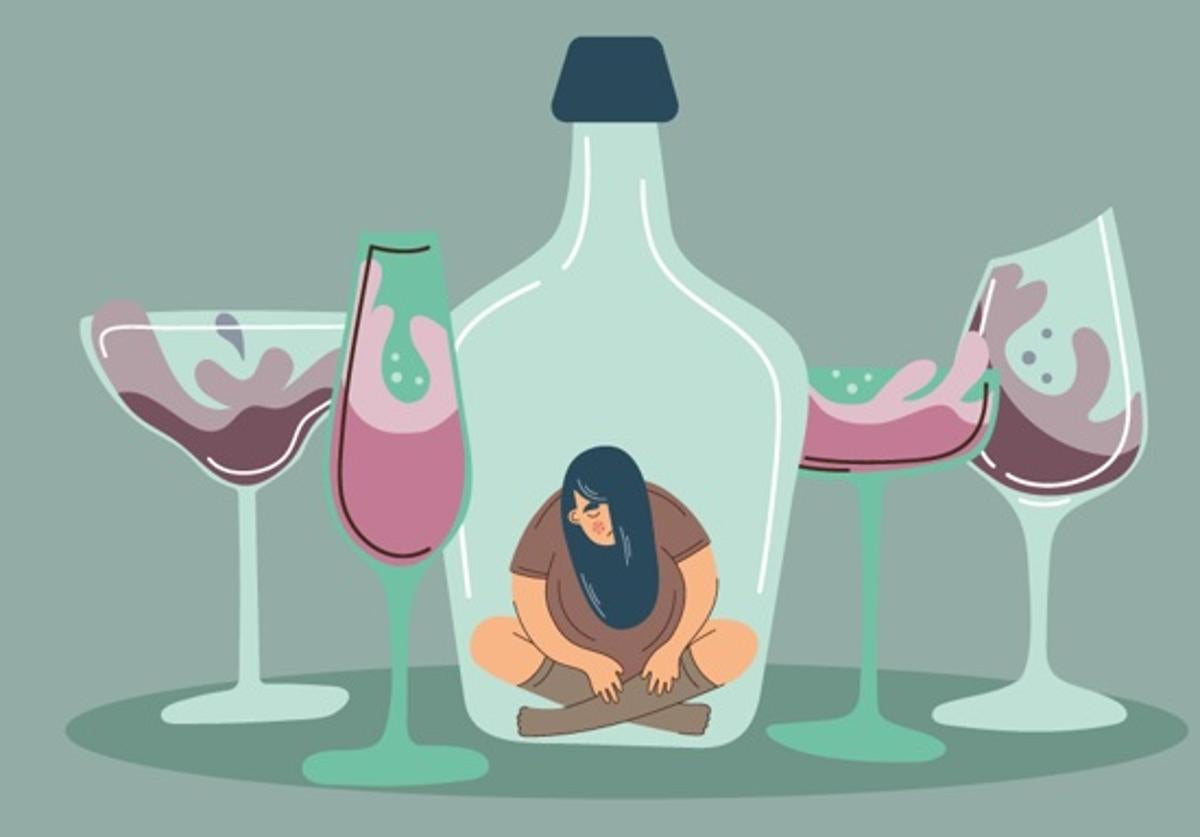Do you suffer from 'hangxiety' after drinking
Booze blues affects around 12% of people who drink too much alcohol
Solange Vázquez
Viernes, 12 de mayo 2023, 12:44
Headache, palpitations, upset stomach, cold sweats, constant trips to the bathroom... these are the main signs of a hangover and they are well known.
What is often not included in the list of symptoms, however, is a very specific type of anxiety which occurs the day after drinking too much, which has become known as 'hangxiety', a combination of hangover and anxiety.
It is a state of mind that includes tiredness, a feeling of nervousness, regret, a certain 'disgust' at ourselves and a general lack of energy. It is a brutal contrast to those moments just hours earlier when we believed ourselves to be the king or queen of mambo, buoyed-up by the drink.
Although it is being studied from a point of view of mental health, this consequence of drunkenness is more physiological than psychological and around 12 per cent of people who suffer hangovers will experience it, according to a study from the University of Utrecht.
Diego Redolar, one of the most renowned neuroscientists in Spain, explains what happens to our brain when we have hangxiety, which is also known by other names such as booze blues or beer fear.
"Alcohol is a depressive substance that acts on the amino acids of the nervous system (glutamate, gamma-aminobutyric acid and GABA ) and inhibits the neurons," says the expert.
And what does it inhibit first? "The dorsolateral prefrontal cortex, which is involved in regulating mood. And it does so in a very marked way," he says.
Bad mood
This is because the amygdala, a brain structure which helps to control anxiety, ends up uncontrolled because the dorsolateral frontal cortex, which acts as its 'limiter', functions at a low level.
The result? As the experts say, alcohol is a drug whose effects work backwards. In other words, it produces euphoria at first and then the opposite, but it doesn't leave you where you started off, but a step lower down.
"That is a chaotic situation which creates a very unpleasant state of anxiety, which can remain throughout the whole day after you have consumed alcohol," he says.
Some experts would go even further. Dr Tim Cantopher, who has studied the subject, has warned in the British press that after consuming alcohol abusively, although we don't realise it, "it can take six weeks" to reduce anxiety to the level it was prior to getting drunk and triggering these effects.
Who is most affected by hangxiety? In principle most scientists agree that women suffer from it more than men. And, according to a work published in academic journal Personality and Individual Differences, people who are more introverted are likely to suffer from it most, given that the levels of activity of certain amino acids in the nervous system are lower in them, so the rollercoaster ride caused by the alcohol is more acute than in others.
The negative emotions we suffer during a hangover mean that we don't regulate our feelings well during that time, according to the same study. That is why we get a general and very uncomfortable feeling of guilt which also reduces our cognitive functions.
So if we need to make an important decision, it's best to put it off until this hangover anxiety has passed. We are really not in suitable shape for decision-making: our cortisol levels are high and dopamine - the happiness hormone - low.
Cringe factor
In addition, the alcohol has stopped us entering the phase of sleep which is repairing and refreshing (we may sleep, but it is not restful) so tiredness takes us over just as we are dealing with the anxiety caused with a hangover and this is a really destructive combination.
And if on top of that we add the cringe factor - that feeling of shame, and wishing the earth could just open and swallow us up - we end up with an attack of remorse for what we have done under the effects of alcohol, and a feeling of guilt.
Who hasn't heard of or experienced that? And in fact, it is one of the reasons that many people give up drinking at some point in their lives, or at least decide to give it a rest and cut down on the amount they drink.
A "very dirty" drug and one with mysteries still to be solved
Anxiety after drinking can lead to alcoholism because some people try to alleviate this feeling of nervousness by drinking again. Carl Erik Fischer, who has written books about addictions, warns that although alcohol is so popular, it is “still a very mysterious drug” and there is still an awful lot we don’t know about it. What is known is that it affects cerebral receptors - and it does so a lot. In fact, he calls it a “very dirty drug” in some respects, even more so than some others which are considered hard drugs.
